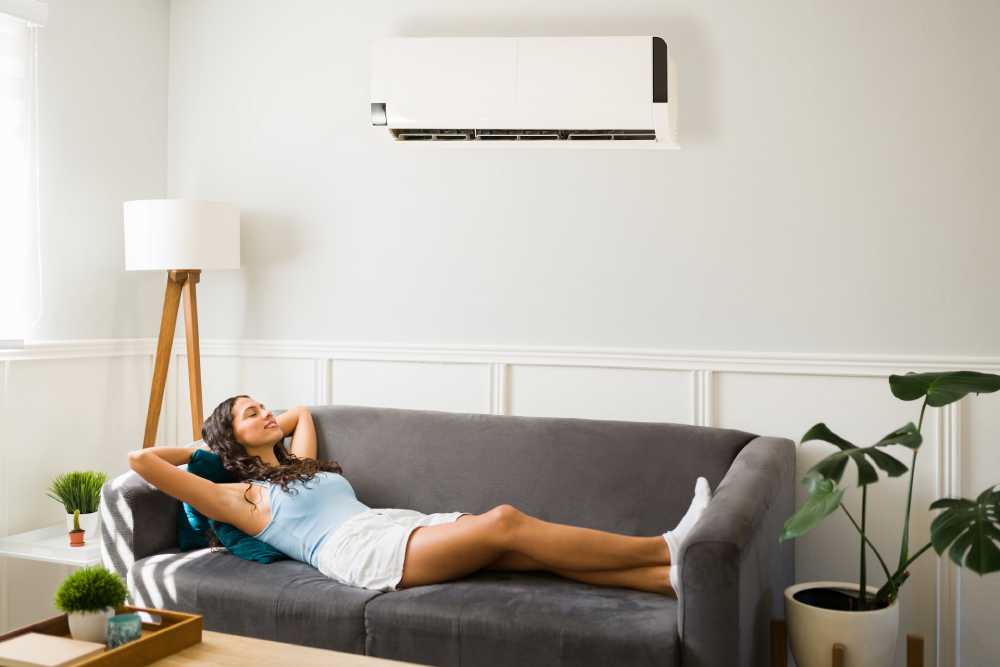In the summer, high temperatures can be a health risk. Heat-related illness can affect everyone, but people with preexisting conditions, young children, and the elderly are at greater risk.
Air conditioning improves indoor air quality by removing dust, fumes, and other pollutants. It also reduces fatigue, stress, and depression.
Reduces Stress
A relaxed and comfortable home or office atmosphere provides emotional equilibrium and promotes a sense of contentment. In addition, climate-controlled environments enhance productivity and foster positive moods that can significantly improve your quality of life.
Moreover, high temperatures can cause lethargy and a lack of interest in physical activity. The cool temperatures offered by air conditioning ensure a good night’s rest and help you feel ready to get up and tackle your daily routines.
Extreme or fluctuating temperatures trigger the body’s stress response by stimulating the release of hormones that can increase anxiety and irritability. Additionally, the hippocampus is sensitive to temperature and can affect memory retention. Fortunately, HVAC solutions mitigate these responses by maintaining stable indoor temperatures.
This stability can also reduce the risk of accidents in the workplace. It is estimated that each degree Celsius temperature increases the accident rate by 6%. Keeping your temperature stable can prevent such accidents and help you work efficiently.
Prevents Insects and Parasites
Air conditioning can help prevent pest infestations like flies, mosquitoes, ants, and bed bugs. These tiny insects love warm climates, but your air conditioner creates a relaxed atmosphere that they don’t find appealing. It can also thwart mold growth by circulating dry, clean air in damp areas.
Regular heating and air conditioning maintenance will help ensure the filters catch allergens like dust, pet dander, and pollen. This helps prevent allergies and asthma attacks and reduces the likelihood of respiratory conditions like rashes, fatigue, sinus congestion, and eye irritation.
This is particularly important for those with children or elderly family members who are more vulnerable to these conditions. The constant circulation of fresh, clean air can also promote a good night’s rest for the whole household.
Regulates Humidity Levels
Modern air conditioning systems are designed to reduce moisture in the air and keep it within healthy parameters.
High humidity levels can result in clammy skin, foggy windows, and musty odors. This is because the vaporized water in the air causes condensation, damaging paint and wallpaper, and even mold growth.
Humidity also affects air conditioning because it cancels out its cooling effect, forcing the system to work harder and consume more energy. This can be especially problematic for seniors and young children, who have a more challenging time regulating their body temperature and may suffer from heat exhaustion or even heat stroke.
Air conditioning keeps the indoor climate comfortable, lowers the core body temperature, and helps people concentrate. This can increase productivity in the workplace as well.
Creates a Safe Space for Exercise
Many join gyms early in the year either as part of a New Year’s resolution or to get their bikini body ready for summer. Having air conditioning can help create an environment that is conducive to exercise.
It can help you stay focused and prevent fatigue, headaches, and joint pain from hot temperatures. It can also improve your health by filtering out dust, allergens, and pollutants in the air, lowering your risk of respiratory problems.
Working up a sweat is an indication that your workout is effective. However, sweating does not burn more calories. Instead, sweating is the body’s way of expelling harmful toxins. If you work out in an air-conditioned gym, your body will be less likely to remove toxins. As a result, it may not benefit you as much as an outdoor summer workout would.





